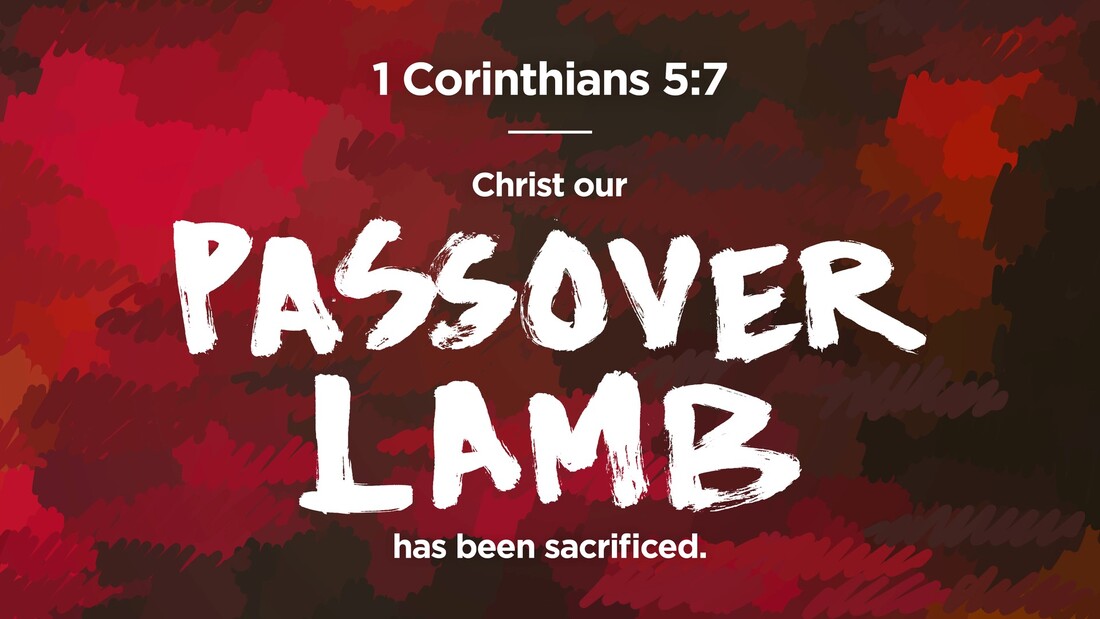|
Cultivating an Eternal Perspective on Temptation James 1:9-18 (PDF at the bottom) 1. Beginning in verse 9, James focuses on the place of the rich and poor before God. The ESV study note says, “both poverty and riches bring enormous pressure on a person to focus on the world rather than on Christ.” Read Proverbs 30:7-9. How do these proverbs affirm the truth of the quotation above? In which area do you struggle most? Wanting more, and therefore focusing on what you don’t have? Or, having plenty and thus, forgetting the Lord? Explain. 2. How does James direct and encourage both the poor and rich, in verses 9-11? What perspective is he trying to help each cultivate in his exhortation? How can his appeal to this perspective help you in your life, especially as it relates to money and material possessions? 3. In verse 12, James returns to the issues of trials, suffering, and the need to persevere. What new incentive to endure through these hardships does James now add? What does he mean? Does the new incentive James introduced in verse 12, motivate you? Why or why not? 4. What does James say we must not do when we are tempted (v. 13)? Why? James says God does not tempt us (v. 13), yet also declares that God tests us (v. 3). How would you describe the difference between the two? What truth is James teaching us here about God’s character (v. 13)? Why is that truth vital to affirm and embrace? 5. If we are not tempted by God, according to verse 13, where does temptation come from (v. 14-15)? Read Matthew 5-7; 15:10-20. Our culture focuses a great deal on behavior, almost exclusively so. What key principle is being taught by Jesus and James about the origins of our behavior? 6. After desire “gives birth to sin,” what happens (v. 15)? What does that mean? Read Romans 6:23. Paul agrees with James about the consequence of sin. What good news does Paul offer in response to the bad news? 7. In verses 16-17, James once more reminds his readers of God’s goodness. What else does he say about God that makes this news even better? (See also, Psalm 102:25-27; Malachi 3:6) Why is this good news? How does this attribute of God differ from human tendencies? 8. In verse 18, James speaks of our spiritual salvation. How does God “bring us forth” by the “word of truth.” What is the “word of truth” to which he refers? (See Ephesians 1:13; Colossians 1:5; 2 Timothy 2:15) Walking Points 9. Why is it important to consider our desires and motivations in the pursuit of righteousness? Why is a worldview that focuses only on external behavior wrongheaded? A litmus test for morality, for many in our culture, is whether or not a behavior hurts another person. How then would you explain to a friend the importance of, not only their outward behavior, but also their desires and motivations? Name three things you are doing on a regular basis to cultivate godly desires in your life. On a scale of 1-10, how are you progressing in this area of your sanctification? What can the members of your class or group do to help you? 10. Name ten good gifts you have received from the Lord. (Two spiritual, two health-related, two relational, two material/financial, and two vocational)
0 Comments
Trials and Temptations James 1:1-8 (PDF at the bottom) 1. Read James 1:1-8. Write down any key ideas or phrases that catch your attention. What are the key principles you believe we ought to draw from this text? Why did you choose those principles? 2. How does James introduce himself in his greeting (v. 1)? Who and what does his reference to, “the twelve tribes in the Dispersion,” refer to in his greeting? 3. For what reason does James tell his readers to “count it all joy” when they “meet trials of various kinds,” according to verses 2-4? Why should his reason help a person count their trials as joy? 4. Do you “count it all joy” when you go through trials in your life? Why or why not? What makes counting it all joy, so difficult? What sorts of adjustments does a person (even a Christian) need to make in their life to have that sort of perspective on the trials and struggles they experience in their lives? 5. The ESV translation of the Bible translates the second part of verse 4 as, “that you may be perfect and complete, lacking in nothing.” Read two or three other translations of the same verse. How would you put that verse in your own words? What’s the key idea? 6. Read verses 5-8. Why should you ask God for wisdom? Read Proverbs 1-4; 1 Corinthians 1:18-2:16; Colossians 2:1-3. Based on these texts, but in your own words, write down the key principles related to…
7. Based on what you have learned about wisdom, how is it different from intelligence or the memorization of facts and information? Do you pray for wisdom? Why or why not? 8. Why does James say you must ask for wisdom in faith, without doubting? What is his concern about doubting in this context (vv. 6-8)? 9. What does James mean by the term, “double-minded?” (See Matthew 6:24) How does being double-minded cause one to be unstable in all their ways? What is the impact of such instability in one’s faith and life? How are you doing in this area? Do you struggle with being double-minded? Explain.
The Inspiration to Explore (for the week of May 2, 2021) PDF at the bottom Key Idea from Sermon The Holy Spirit makes us want to know Jesus.
1. At the beginning of the text, who spoke to Philip? What was said to Philip (v. 26)? 2. How did Philip respond (v. 27)? 3. How does the Lord ordinarily lead you in your life? How do you usually hear the Lord’s voice? How do you usually respond when you “know that you know” that God is calling you to do something? 4. Who was the Ethiopian eunuch and why was he in Jerusalem (v. 27)? 5. It is likely that this eunuch was a “God-fearer.” That may explain why he was reading Isaiah. Describe the conversation between the eunuch and Philip in verses 29-31. 6. Sometimes evangelism is simply explaining to another person what they do not understand about the Christian faith or what is in the Bible. How was Philip able to help in this situation? 7. What are some reasons Christians should study the Bible and Christian doctrine? What are some different ways Christians can study these things? (be creative) 8. What was the eunuch’s question about the Isaiah text (vv. 31-34)? 9. How did Philip answer the eunuch’s question (v. 35)? What does that text from Isaiah teach about the Good News about Jesus? 10. How was the eunuch’s faith confirmed after he heard the Gospel (vv. 36-38)? 11. All of this happened because Philip heard and obeyed the Spirit’s leading. How do you usually feel after you disobey the Spirit’s leading in your life? After you obey the Spirit’s leading? (Share some examples from your life of both.) 12. What are some ways you can begin to grow in hearing and obeying the Spirit in your life? What might happen when you do? Are you ready for that?
The Advance of the Gospel Philippians 1:12-18 1. Read Philippians 1:12-18 twice. Write down any key ideas or phrases that catch your attention. What are the key principles you believe we ought to draw from this text? Why did you choose those principles? 2. What is Paul talking about when he refers to “what has happened” to him in verse 12? What larger purpose does he give for his present situation? 3. What does it mean to “advance the gospel” (v. 12)? What is the “gospel” Paul is referring to (Read John 3:16; Romans 1:1-5, 16-17; 5:6-11; 1 Cor. 15:1-9; 2 Cor. 5:16-21 to help you better answer the question.) Gospel literally means, “good news.” Based on these verses, what are the key elements of that good news you would want to share with another person to help advance it? 4. Read Genesis 50:20 and Romans 8:28. How do these texts relate to Paul’s words in verse 12? 5. According to verse 13, how was the gospel being advanced during Paul’s imprisonment? What group(s) of people did Paul single out as coming to know the gospel because of his circumstances? Using a little speculation, how do you think Paul was using his time during his imprisonment? What does that say about the Apostle? (Hint: skim through the Book of Acts to help you answer this question.) 6. It is interesting to note that these “brothers” Paul refers to are not ordained clergy; they are laypeople. How did most of these people respond to Paul’s imprisonment (v. 14)? What was it about Paul’s situation that produced that sort of “confidence in the Lord” in the lives of others? Share a time you have been emboldened in your faith because of the faithfulness of another person. Read Ephesians 4:11-16. How are the “brothers” of Philippians 1:14 putting into practice the teaching of Ephesians 4:11-16? What are the key principles of the Ephesians text and how can today’s church more faithfully live them out? 7. Based on verses 15-18, what was the “word of God” the “brothers” (laypeople) spoke (preached and taught)? In other words, what was their central message? In what ways can the church today get distracted from that central message? How can the church regain her focus during those distractions? 8. What were the contrasting motivations of those who were preaching Christ, based on verses 15-18? Paul does not dispute the message being preached, so we are safe in assuming both parties were preaching sound doctrine. But clearly their motivations were very different. Why would some have negative motives for preaching Christ? What would that look like in the church today? Do these different motives for preaching Christ really matter, as long as the true message is communicated? Why? 9. What was Paul’s response to those who preached Christ out of less-than-noble motives (v. 18)? How was he able to have that attitude, especially since those ungodly motives were personal attacks against him? How do you usually respond to those who treat you poorly? Why? 10. Paul said he was imprisoned for “the defense of the gospel” (v. 16)? He was there because of the gospel and would have the opportunity to make a case for it. While we may not be imprisoned for our faith, what are some ways Christians today can faithfully make a case for the gospel when they are under scrutiny and attack? Walking Points 11. Share a time when you found yourself in a bad situation but discovered later that God used it for good. At the time of the experience were you able to see how God would use it for good? If not, how long did it take? What enabled you to see how God was working in your circumstances and to trust him during that troublesome situation? 12. Paul’s circumstances did not hinder his faithful boldness. What sorts of circumstances hinder your faithful boldness in sharing the gospel with others? Why? What are three things you can start doing today to overcome those obstacles? 13. What would a Christ-honoring, eternal perspective look like when you face persecution because of your faith in Christ? Besides Paul, what other examples or teachings in Scripture support your view? Name two or three ways you can best cultivate that perspective in your life? 14. Can you share an example of how you were encouraged to be faithful because of the tough circumstances someone else was going through? What sorts of “fears” of “speaking the word” would the Christians in Paul’s world have had? Were those fears legitimate? What sorts of fears of speaking the word do Christians in our city have? Are those fears legitimate? Explain.
The Turning Point from Discouragement (for the week of April 18, 2021) (PDF at the bottom) This Week’s Scripture: John 20:19-31 Key Idea from Sermon Jesus gives encouragement.
1. The disciples have left Jerusalem and returned to Galilee. Describe the scene in verses 1-3. 2. Read verses 4-6 and Luke 5:1-11. Based on those texts, why do you think John and Peter knew it was Jesus (vv. 7-8)? (Observation: Verse 9 says there was a warm fire and breakfast waiting for the disciples when they came ashore. Even as the risen Lord, Jesus continues to serve his disciples. This verse (the fire of burning coals) also sets a familiar scene of where Peter denied Jesus (John 18:18), which will come into play.) 3. Read verses 15-17. What does Jesus ask Peter three times? Why? (See John 18:15-18, 25-27) 4. The first time Jesus asks Peter this question, he adds the phrase, “more than these.” Read John 13:37; Matthew 26:33; Mark 14:29. Based on these Scriptures, why might Jesus have added that phrase? 5. How does Peter reply to Jesus each time? What emotion does Peter have after Jesus asked him the question the third time. Why do you think that is? 6. Based on the Scripture, what shift or turning point do you think was happening to Peter as he was asked the same question three times in a row? 7. What did Jesus command Peter to do after each of Peter’s replies? What did Jesus mean? (See John 10:11, 14 and 1 Peter 5:1-4) 8. This scene in John’s Gospel is commonly referred to as Peter’s recommission or reinstatement to apostleship after his denials of Jesus. At what point(s) in your own story have you experienced Jesus “reinstating” you to serve him? Or, to deepen your relationship with him? 9. Pastor Phillip emphasized the encouragement Jesus gave to Peter. What does it mean to encourage someone? Why is encouraging another person so important? 10. Share a time when you were going through a season of discouragement and were strengthened and built up by someone else coming along beside you to encourage you? What difference did it make in your life?
Turning Point Connections (for the week of April 11, 2021) PDF at the bottom This Week’s Scripture: John 20:19-31 Key Idea from Sermon Jesus connects us to each other.
1. Beginning with the end of this week’s Scripture (vv. 30-31), what purpose does the Apostle John give for writing his Gospel? (Who does John want you to believe Jesus is? And what will be the result for believing this about Jesus?) 2. What does it mean to “have life in his name” (v. 31)? In what ways have you already experienced this “life” to which John is referring? 3. As you think about the key events (or, “signs”) in the life and ministry of Jesus, which ones do you find most captivating? Which ones played a significant role in bringing you to faith in Christ as Messiah, Son of God, and Savior (your “Turning Point”)? 4. Read verses 19-23. Jesus had just been crucified. What emotions do you think the disciples were experiencing and why? 5. What are the first words Jesus spoke to the disciples after he miraculously appeared to them? Why was it important that he spoke those words to them? How did they respond? 6. How did you respond when you first realized that Jesus was not a dead historical religious figure, but was truly raised from the dead and lives today? In what way was that a “turning point” in your life? 7. The “Sent One” is now the “Sender.” This part of John 20 is sometimes referred to as John’s “Great Commission.” What does John say Jesus sent his disciples to do? How does that compare with Matthew’s version of the Great Commission (Matthew 28:18-20)? 8. According to verse 22, what does Jesus provide the disciples with to equip them for their mission? Why is this important (essential)? 9. What did Jesus mean (and not mean) in verse 23? (You may want to consult a Study Bible or online commentary to help you answer this one.) 10. Read verses 24-29. After seeing Jesus “in the flesh,” how did Thomas respond to Jesus? What is the significance of Thomas’ response? What is important about the way Jesus, in turn, responded to Thomas and how does that encourage you? 11. Returning to the theme of our first two questions, who are three people in your "Personal Mission Field” that you can share this life-giving, good news with? Based on this week’s lesson, what will you share with them? 12. As a group, pray (specifically or generally) for those people in your Personal Mission Field. Ask the Lord to begin to prepare their hearts and minds to be receptive to this good news (Gospel). And pray for the same Holy Spirit who raised Jesus from the dead and who was breathed out upon the disciples in our Scripture, to work in and through you as you share the Gospel with those you are praying for.
A Jolt in Jerusalem (for the week of March 28, 2021) This Week’s Scripture: Mark 11:1-11 Key Idea from Sermon The Triumphal Entry: Jesus comes to Jerusalem as King.
1. Where did the events of this story take place (v. 1)? What did Jesus ask his disciples to do (vv. 2-3)? 2. How did the disciples’ experience match with what Jesus said (vv. 4-7)? What did the people in the village do when the disciples asked to take their colt (v. 6)? 3. How did Jesus enter Jerusalem (vv. 7-11)? 4. Why did the people spread cloaks and branches on the road for Jesus? What was the atmosphere of the crowd when Jesus rode into Jerusalem (vv. 8-10)? 5. What did the people shout when Jesus entered the city (v. 9)? What did Jesus communicate to the crowds by riding a donkey into Jerusalem? 6. What does the reaction of the crowd tell us about how they interpreted Jesus’ entry into Jerusalem (vv. 9-10)? What can we learn from the attitudes of the people who followed Jesus into Jerusalem? How can we express our praise to the Lord? 7. Why do you think Jesus went to the temple first but then went out to Bethany with his disciples (v. 11)? Why didn’t Jesus stay in Jerusalem (v. 11)? 8. What do you think the disciples thought about what Jesus asked them to do? How should we imitate the disciples’ example? 9. When has God told you to do something that you thought was unusual or difficult to justify? 10. Why do you think God does not always reveal his intentions or long-range plans for us when we find ourselves in difficult circumstances? 11. What should we do when we do not understand what God is trying to accomplish in us and through us? 12. What could you do this week to celebrate what Jesus has done for you? 13. How should you react the next time a situation arises that you don’t understand? May you richly experience the presence of God this week!!!
The Very Reason He Came (for the week of March 21, 2021) PDF File at Bottom This Week’s Scripture: John 12:20-33 Key Idea from Sermon Jesus said “yes” to God’s plan. Jesus brings glory to God.
1. Explain what happened in John 12:20-22. 2. What was it about the visitation of the “Greeks” or “Gentiles” that led Jesus to realize “his hour” had come (“his hour” = the time for him to go to the Cross” – verse 23)? 3. What is Jesus saying in verse 24? What are the practical implications of his teaching for Christian living? 4. Read verse 25. What does Jesus mean by using the following Jewish idioms? What is his main point in this verse?
5. What are some ways you “love your life” in this world (in the way Jesus is speaking about it)? 6. What should “hating your life” in this world look like (in the way Jesus is speaking about it)? Why is it so hard to have this perspective? 7. According to verse 26, what does a person who is serving Jesus do? What should that look like in a person’s life? And what is the “reward” for serving Jesus, according to Jesus? 8. Read verse 27. What was the “very reason” Jesus came to “this hour?” Why was Jesus so troubled over it? 9. How did this “very reason” bring glory to God? What does it mean to glorify God? Read 1 Corinthians 10:31 and describe what glorifying God ought to look like in your life. 10. Who is the “prince of this world” referring to in verse 31, and what does it mean that he will be “driven out?” 11. Now that you have had a chance to reflect on this week’s Scripture, what would you say God’s plan was that Jesus said “yes” to? 12. Share prayer requests and spend a few minutes praying for one another if you feel comfortable doing so. May you richly experience the presence of God this week!!!
For God So Loved (for the week of March 14, 2021) PDF at the bottom This Week’s Scripture: John 3:14-21 Key Idea from Sermon From all eternity God freely wills the good of others and gives of himself to them. This is most beautifully expressed in our Lord Jesus Christ being “lifted up.” We call this self-giving the “love of God” and we receive it as we believe (or, trust) in Jesus.
1. What are some ways our culture defines love? (Think about how your family, friends, television shows and movies, songs, greeting cards, etc., express it.) 2. Which of those definitions do you think is closer to a biblical understanding of love? Which of those definitions is further away from a biblical understanding of love? Explain why you think that. 3. Based on this week’s Scripture, how would you describe the “love of God” to a friend? What are the key characteristics of God’s love? Give examples of your understanding from this week’s Scripture. (Also, read Romans 5:6-8 and 1 John 4:7-12 for further guidance.) 4. What does it mean that the Son of Man (Jesus) will be lifted up (v. 15)? (Learn more about the reference to “Moses and the snake” by reading Numbers 21:4-9.) 5. What does it mean to “believe” in Jesus (see verses 15, 16, 18)? 6. Does “believing in Jesus” mean more than intellectual acknowledgement? Explain your answer. (To help you, think about the difference between “knowing someone” and “knowing about someone.” How are they the similar? How are they different?) 7. According to verses 15 and 16, “eternal life” is the result of believing in Jesus? What do you think that means? Is that a comfort to you? 8. Based on this week’s Scripture (as well as the other Scripture in question 3), why was it necessary for God to express his self-giving love through Jesus in this way? What was the state of “the world” prior to the sending of Jesus? Do people still need Jesus today? If so, why? 9. As you reflect upon God’s initiating, self-giving love for you, what feelings and emotions do you experience? Why do you think that is? 10. In what ways should your love for God and others be tweaked (or completely overhauled) by a richer understanding of God’s love for you? 11. What are some ways you continue to experience the love of God daily in your life? 12. Share prayer requests and spend a few minutes praying for one another if you feel comfortable doing so. May you richly experience the love of God this week!!!
Cleansing the Temple (for the week of March 7, 2021) PDF file at the bottom This Week’s Scripture: John 2:13-22 Key Idea from Sermon “The temple was holy ground, but unholy things were going on there. Therefore, Jesus went on a rampage and threw out the people who were selling animals for sacrifice at scalper prices. He cleansed the temple. He forcibly threw out all the unholy clutter. He returned the temple back into a holy place for holy purposes. The Bible says our bodies are temples of the Holy Spirit (1 Corinthians 6:19-20). Jesus wants to cleanse our temples of unholy things too. Let’s let Him!”
1. What is “Passover” and why was Jesus observing it? (Read Exodus 12:1-14 to learn more about Passover) 2. Based on the Scripture from Exodus 12, how would you say Jesus fulfilled Passover? (To learn more, visit the following link from, “Jews for Jesus," - “Christ in the Passover.” It is a wonderful visual explanation of how Jesus fulfilled Passover.) 3. Did you already know how Jesus so beautifully fulfilled Passover, or was this new to you? What impressed you most as you realized how Passover pointed to the coming of Jesus? Did you have an “aha” moment? Share with your thoughts and experiences with your group. 4. How might you share this good news about Jesus with your family members and friends? What key points would you highlight for them? 5. Jesus was not happy with what was taking place in the temple courts. Why did this bother Jesus so much? What was supposed to be happening there? 6. The disciples remembered that Psalm 69.9 says, “Zeal for my Father’s house will consume me.” What do you think that means? Pastor Phillip asks, “How does zeal for the Father and his house consume you?” 7. What does “zeal for God’s house or temple” mean in light of 1 Corinthians 6:19a: “Do you not know that your bodies are temples of the Holy Spirit, who is in you, whom you have received from God?” 8. Knowing that your body is a temple of the Holy Spirit, what are some practical things you can put into practice to help you maintain a “zeal” for God? What “unholy things” do you need to cleanse from your life? 9. What was Jesus referring to in verse 19? 10. The disciples and others did not seem to understand what Jesus meant in verse 19. When did the disciples finally understand what Jesus meant and how did they respond? 11. Share prayer requests and spend a few minutes praying for one another if you feel comfortable doing so. May you richly experience the presence of the Lord this week!!!
|
Life Group StudiesCategories
All
Archives
May 2021
|
||||||||||||||||||||||||||||||||||||||||||||||||||||||||||||










 RSS Feed
RSS Feed
